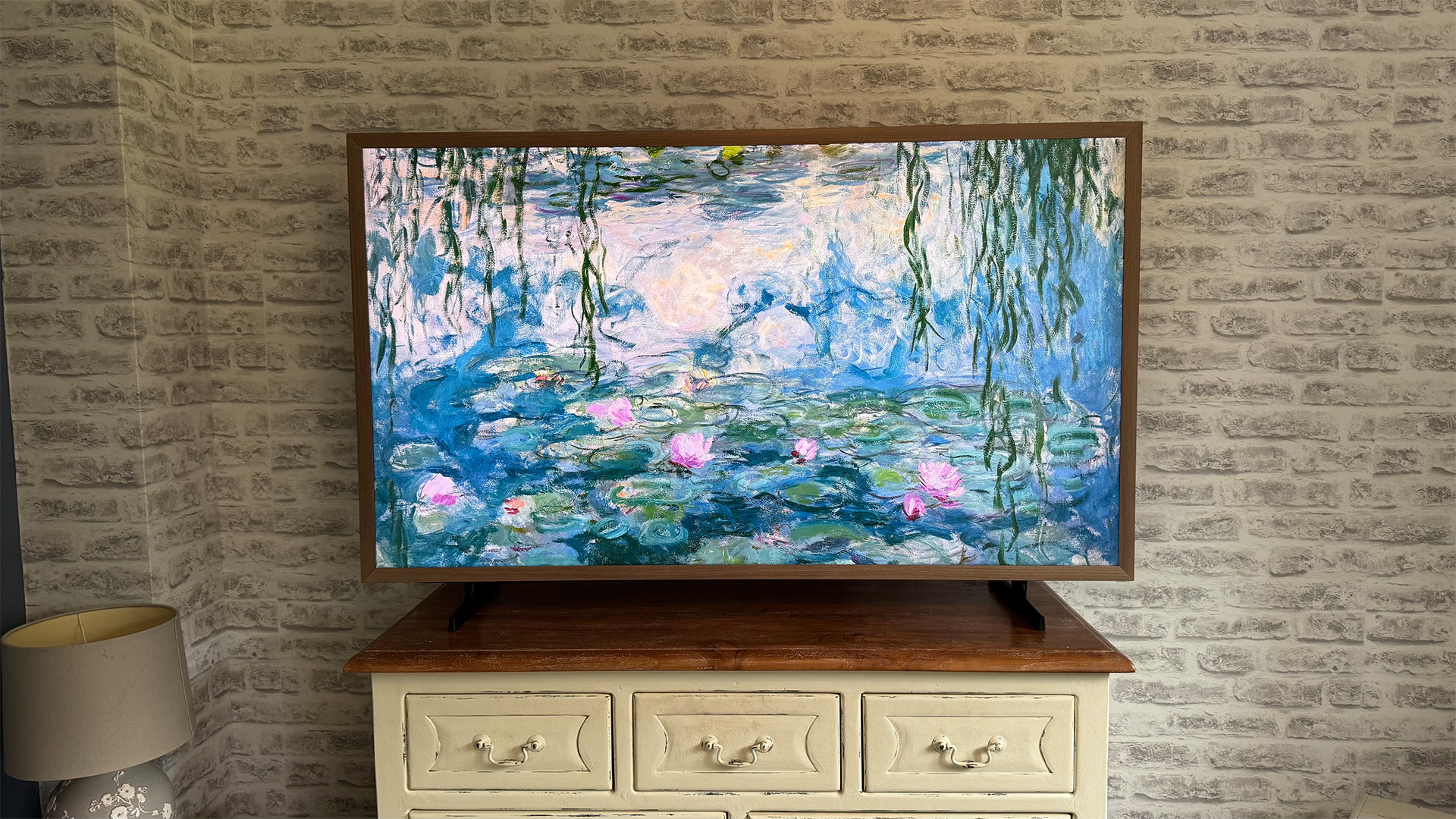Sony 2024 TV lineup: everything you need to know
Sony reinvigorates its Bravia TV range for 2024
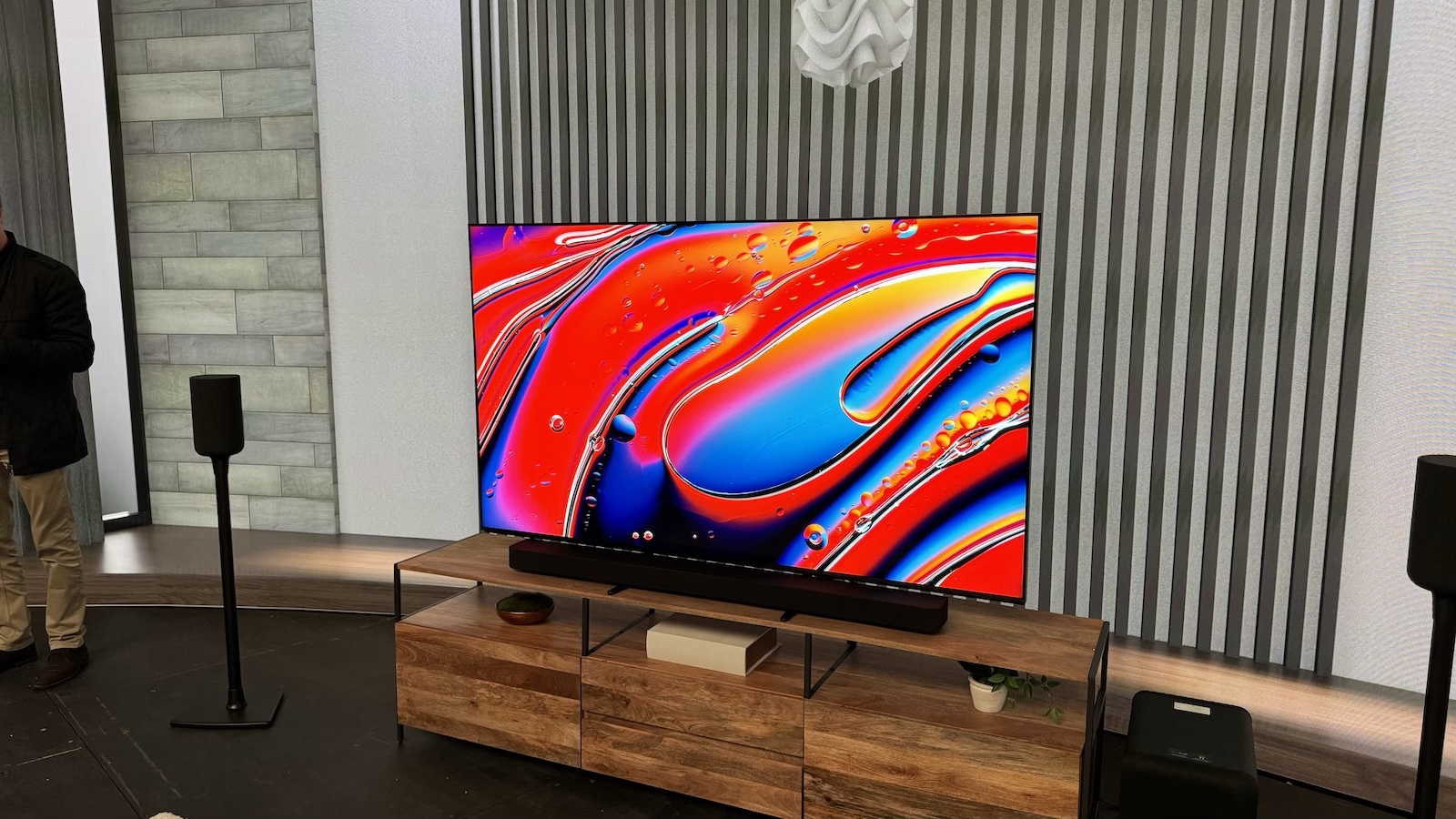
Sony's 2024 range has caused a considerable stir thanks to the company's unconventional approach. While nearly every other manufacturer reserves the top spot of their respective lineup for a flagship OLED TV, Sony is using that position to show off its advanced Mini LED backlighting system.
In fact it is releasing only three new TVs (four if you live in the US or Australia) this year, with the remainder of its 2024 lineup comprising models carried across from last year. On paper, that sounds like an issue. Sony, however, enjoyed a practically flawless 2023 where TV reviews were concerned – so this risky strategy might well pay off.
That being said, 2024 has already been a strong year for Samsung and LG, while early looks at Philips and Panasonic sets promise strong competition to come. So can Sony fend off the competition to reign supreme for another year?
What's new
Before we answer that question, we should look into what Sony has implemented across its 2024 TV line up.
Bravia is back
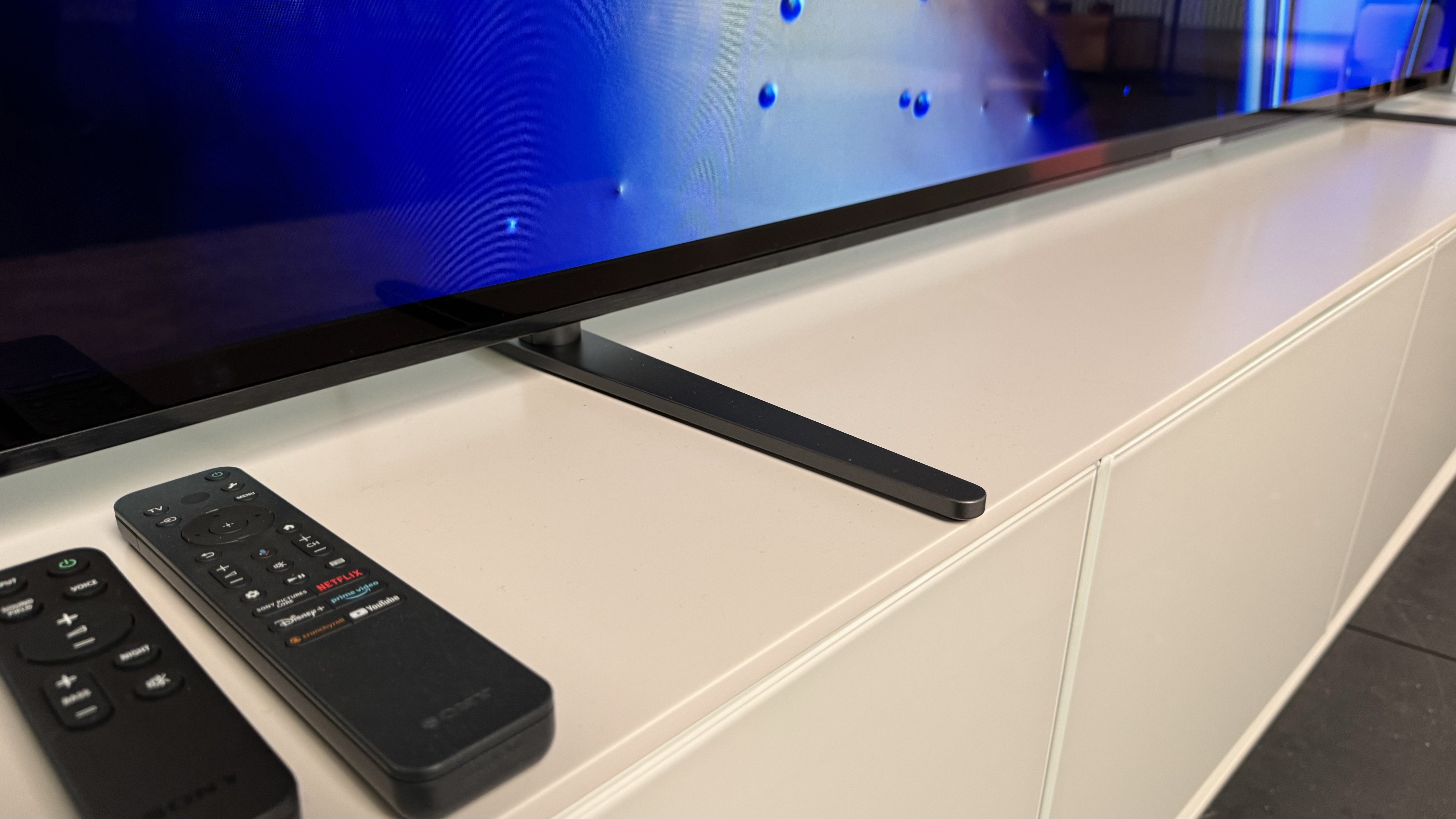
Sony's Bravia moniker is making a comeback for 2024; well, technically it never left, but this year it's becoming a lot more prominent. The naming convention for Sony TVs has been necessarily complex – you have to be fairly knowledgeable of TVs to differentiate your A95L from your X95L – so we are pleased to see that the new models are using a refined naming convention.
In the new range, we have the Bravia 9, Bravia 8 and Bravia 7, as well as the Bravia 3 which remains exclusive for the US and Australian markets. We'll dig a bit deeper into what each of those models includes later, but each will reportedly "bring the cinema home", according to Sony.
OLED takes a back seat for Mini LED
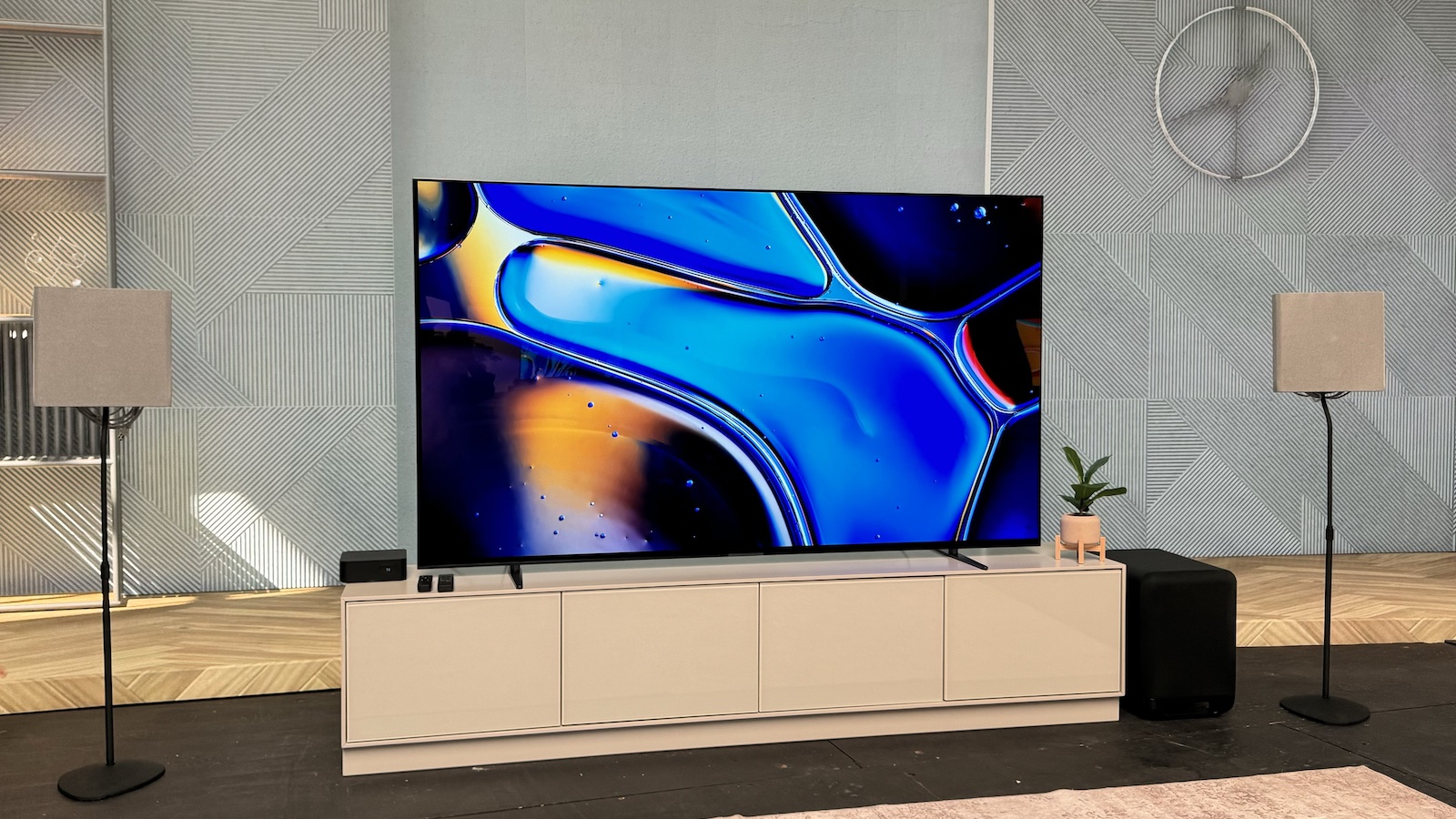
As we have already mentioned, Sony's big focus for this year is Mini LED. It has developed an advanced, more precise and brighter backlighting system which will reportedly deliver OLED-like blacks and vivid brightness. As a consequence, OLED has had to settle for second place on the lineup.
In fact, there is only one new OLED TV in Sony's 2024 lineup: the Bravia 8. This is a follow-up to the Product of the Year winning A80L, so expectations are high for this new model. The other OLED TVs on the lineup are the A95L and A90K; the former is no surprise, as it has been on the market for less than a year, but the latter is about to embark on its third year on sale. Surely it's time for a new small OLED TV Sony?
Nevertheless, the new Mini LED-powered Bravia 9 is shaping up to be a mighty interesting set, thanks to Sony's new backlighting system that promises to be more precise than any backlighting system to have come before it. Sony has taken inspiration from its mastering monitors found in Hollywood editing bays, calling this system the XR Master Backlight Drive. Claimed benefits include better local dimming and reduced risk of blooming on dark backgrounds.
Frustratingly, Sony will launch this set in the UK only at 75 inches upwards, meaning those who only have space for a 55- or 65-inch set will need to look elsewhere.
The new XR Processor runs the show
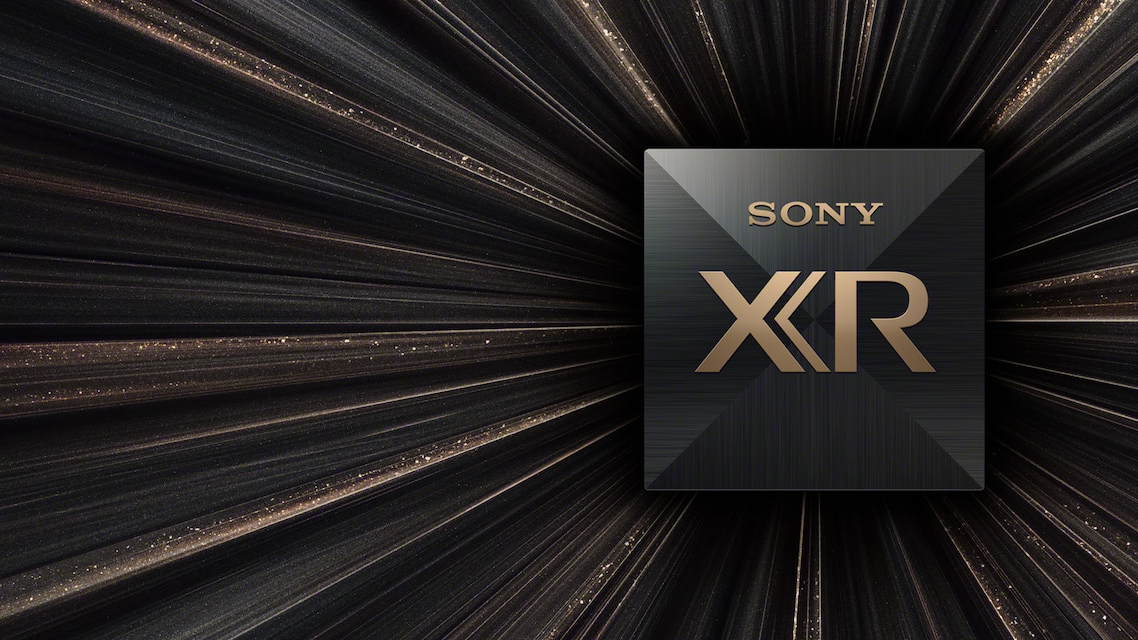
The new Bravia XR Processor is doing a lot of heavy lifting in this new lineup according to Sony. It's the brain behind the new XR Master Backlight Drive system, controlling the LED driver and Micro LEDs on the flagship Bravia 9 model, while delivering picture enhancements to the Bravia 8, 7 and 3 in various ways.
The biggest news is a new picture-recognition engine that can recognise foliage and faces, and enhance them to look sharper and more detailed. Sony claims that the facial recognition system works on a variety of content including live-action and animated movies and TV shows.
Furthermore, Sony is expanding its relationships with content providers in order to create special calibration modes for a variety of streaming services. When watching content on Amazon Prime Video, Netflix or Sony Pictures Core, the TV will access picture information stored in the cloud and calibrate the picture automatically to best suit the content. This is reportedly coming to some older models including the A95L, but for the most part, it will be exclusive to the 2024 models to our knowledge.
Sony 2024 TV lineup breakdown
Sony Bravia 9 Mini LED TV
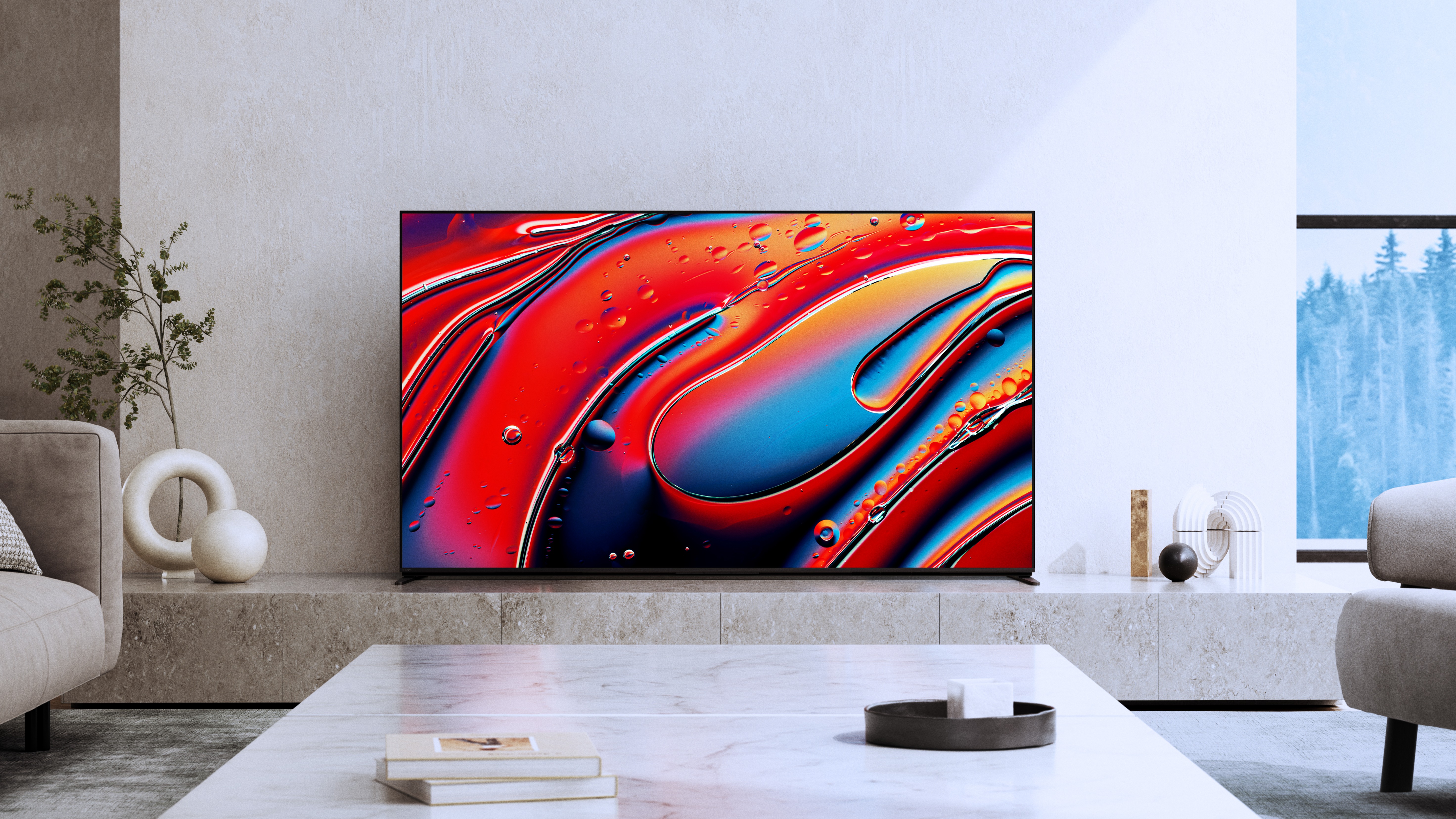
In a shocking twist, the flagship model in Sony's 2024 lineup is not an OLED TV. Instead, Sony has developed an advanced Mini LED backlight instead, and it thinks it can take on the high standards set by its own A95L QD-OLED TV. It replaces the X95L from last year and will reportedly be 50 per cent brighter and feature more than three times the number of dimming zones, resulting in "OLED level blacks" according to Sony.
It's also set to include an advanced LED Acoustic Multi-Audio+ sound system, with a 70W 2.2.2 channel audio featuring on this TV. It includes drivers that vibrate the frame of the TV in order to create sound, which emulates the actuator-based system on Sony's OLED models which instead vibrate the screen.
The set has four HDMI sockets in total, but only two are HDMI 2.1 which will be disappointing for hardcore gamers. Those ports will support 4K/120Hz gaming, VRR and ALLM though – to be expected considering Sony also manufactures the PlayStation 5. The Bravia 9 also features the Google TV operating system, meaning app compatibility shouldn't be an issue.
We round things off with the most controversial aspect of this TV: the sizes. Sony is bringing only two sizes of the Bravia 9 to the UK; 75- and 85-inches. That's quite large and, as a result, the Bravia 9 is expensive. A 65-inch version of this TV does exist, but it appears that it will launch only in the US.
Read our Sony Bravia 9 hands on review
| Row 0 - Cell 0 | UK | US | Australia |
| 65in | No such model | $3300 | No such model |
| 75in | £4499 | $4000 | AU$6995 |
| 85in | £4999 | $5500 | AU$7995 |
Sony Bravia 8 OLED TV

Is this the most anticipated TV of 2024? This is the sequel to the Product of the Year Award-winning Sony A80L so it has astronomically big shoes to fill; no pressure…
This is the only new OLED TV from Sony this year (more on that later), and it is the regular WOLED flavour, not any sort of special QD-OLED or MLA OLED. That's not to discredit the Bravia 8, as underneath a mostly familiar exterior, there are a handful of reported upgrades.
Sony is claiming a nearly 10 per cent increase in brightness compared to the A80L, as well as the upgraded Bravia XR processor which can also be found on the Bravia 9. It also features the OLED Acoustic Surface Audio+ audio system, which vibrates the screen to create a lifelike centralised sound that comes directly from the centre of the screen.
One thing we are glad the Bravia 8 doesn't share with the 9 is the range of available sizes. This OLED set comes in a much more conventional range of screen sizes. You'll be able to buy the Bravia 8 in 55-, 65- and 77-inch versions.
Read our Sony Bravia 8 hands on review
| Row 0 - Cell 0 | UK | US | Australia |
| 55in | £2199 | $2000 | AU$2995 |
| 65in | £2699 | $2800 | AU$3995 |
| 77in | £3999 | $3900 | AU$6995 |
Sony Bravia 7 Mini LED TV

The Sony Bravia 7 is the cheapest new model from Sony if you live in the UK, and Sony considers it to be a spiritual successor to the X90L, which will confusingly also continue in Sony's lineup for the year. The big news is that this model is going from a full-array local dimming backlight to a Mini LED with quantum dots – albeit not the same advanced backlight found on the Bravia 9.
Sony is attributing this upgrade in screen technology with a claimed 30 per cent increase in brightness and eight times more dimming zones. Paired with the XR Processor also found in the other two models, this should be a step up over the existing X90L in terms of picture quality. It also features a slightly trimmed-down version of the Bravia 9's Acoustic Multi Audio system that cuts out the upward-firing beam tweeters.
It also inherits an identical gaming specification to its more expensive siblings, with two HDMI 2.1 sockets with 4K/120Hz, VRR and ALLM gaming support.
Available in four screen sizes, the Bravia 7 is available in a wide selection of markets at the following prices:
| Row 0 - Cell 0 | UK | US | Australia |
| 55in | £1899 | $1900 | AU$2935 |
| 65in | £2199 | $2300 | AU$2875 |
| 77in | £2799 | $2800 | AU$3775 |
| 85in | £3499 | $3500 | AU$4295 |
Sony Bravia 3 LED TV
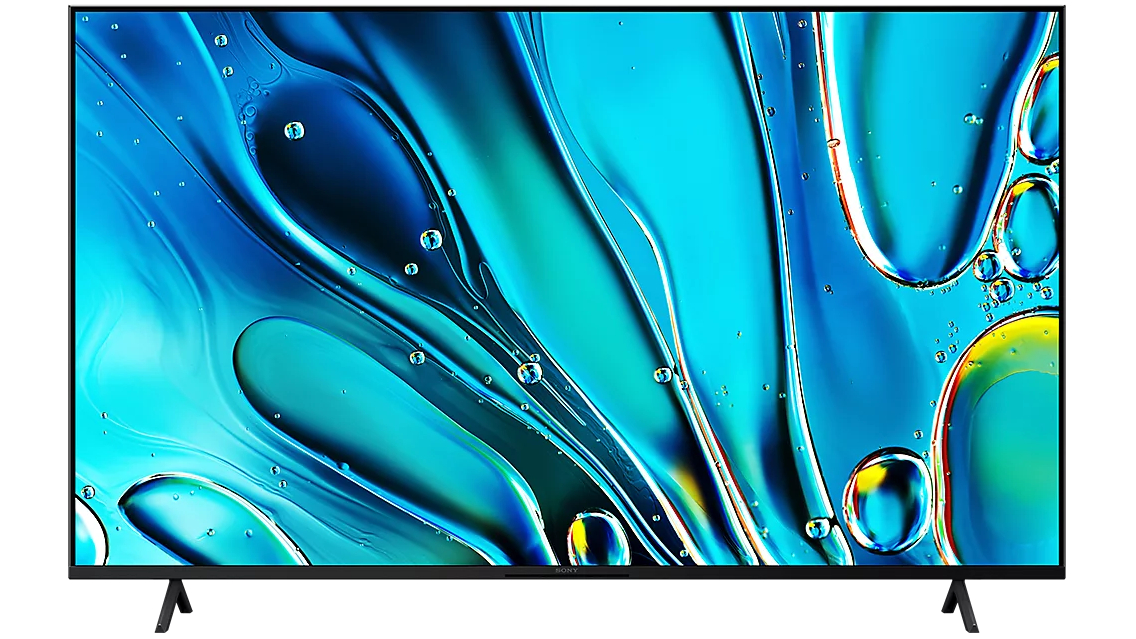
Sony's cheapest 2024 will unfortunately not be making its way to the UK. We have spotted it on US and Australian retail sites, and it looks to be a new entry-level option for Sony's new Bravia range.
It appears to be fairly basic in design and functionality, with a 4K resolution, HDR support and a 60Hz panel. It has four HDMI 2.0 sockets, which rules out a majority of gaming features, meaning PS5 and Xbox Series X gamers may wish to steer clear. This also means it carries the basic ARC standard, and not the more advanced eARC standard; so audio quality over HDMI may not be as crisp as the other sets on this list.
It does come in a wide range of sizes though, all with the following prices.
| Row 0 - Cell 0 | US | Australia |
| 43in | $600 | AU$864 |
| 50in | $700 | AU$954 |
| 55in | $850 | AU$1144 |
| 65in | $1000 | AU$1464 |
| 75in | $1300 | AU$1935 |
| 85in | $1800 | AU$2850 |
Sony A95L QD-OLED TV
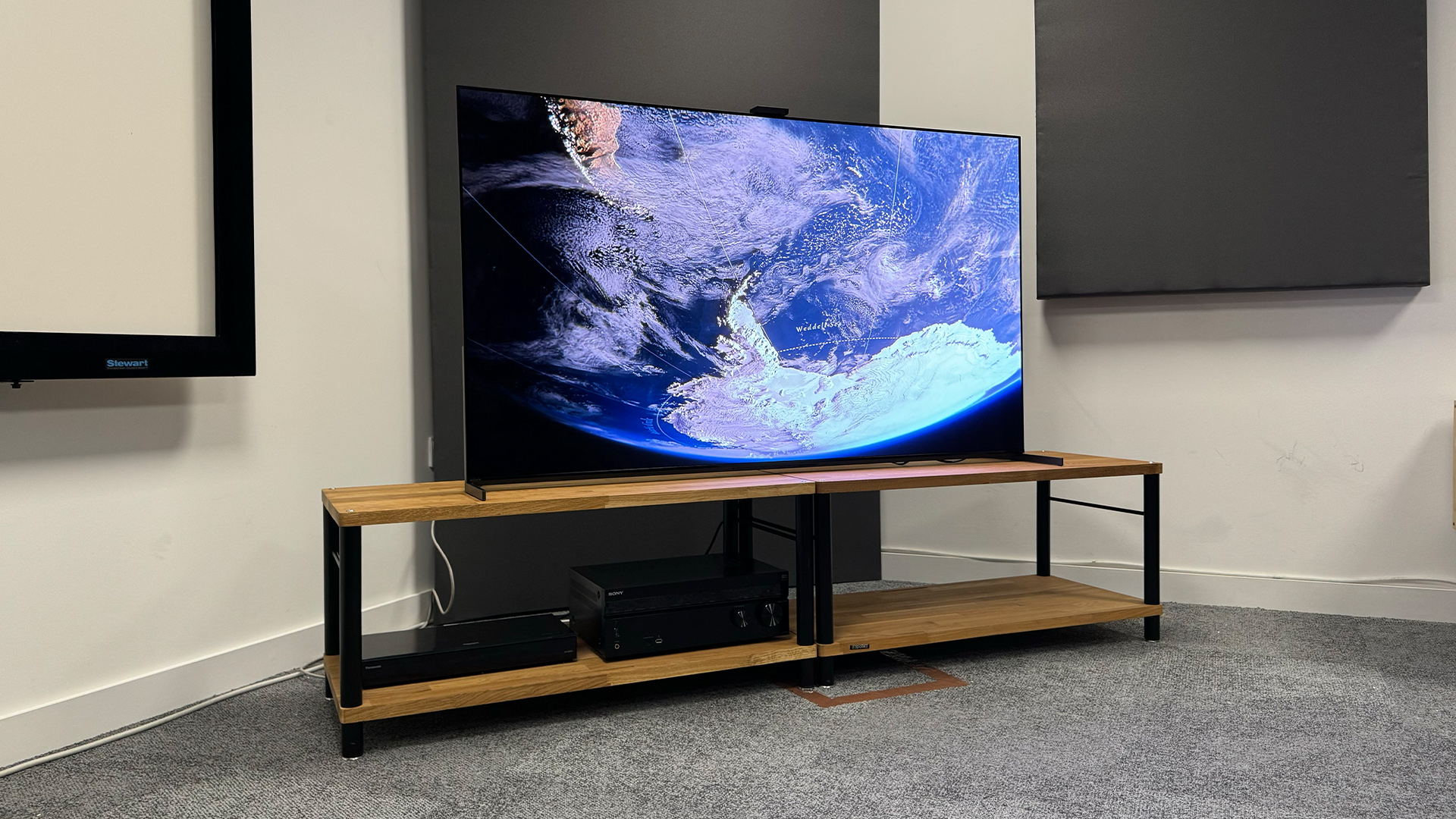
Here we reach the familiar sets in Sony's unconventional lineup as, unlike LG and Samsung, it has decided to carry across a fair few of its older models into 2024, unless you live in Australia where this TV seems to have been unceremoniously axed. The A95L makes the most sense though, as it is less than a year old thanks to a delayed launch last year, meaning there is no real need to to replace it.
It's still one of the best TVs that money can buy, in our opinion, thanks to its dazzling brightness and deep contrast, all while remaining both authentic and balanced in its presentation. In direct comparison with all of the major rivals last year including the LG G3, Samsung S95C and Panasonic MZ2000, the A95L stood head and shoulders above the competition, making it a clear picture champion in the TV realm.
It also happens to sound quite good, with an actuator-based 2.2-channel system which vibrates the screen, backed with two woofers that add a touch of bass. It's one of the very few TVs to earn the full five-star rating in the sound department, thanks to its spacious, crisp and impactful performance, while solid low-level dynamics ensure that voices have the necessary texture and nuance to dialogue.
Features-wise, the A95L runs Google TV, as well as having the expected two HDMI 2.1 sockets (plus an additional two HDMI 2.0 sockets) for the full list of current gaming features. It also supports Dolby Vision HDR and Dolby Atmos for enhanced picture performance and immersive audio.
If there's one area in which we could critique the A95L, it would be the price. It was expensive when it launched last year, although that price looks to be dropping fairly consistently.
Read our full Sony XR-65A95L review
| Row 0 - Cell 0 | UK | US | Australia |
| 55in | £2499 | $2800 | Discontinued |
| 65in | £2999 | $3500 | Discontinued |
| 77in | £5499 | $5000 | Discontinued |
Sony A90K OLED TV
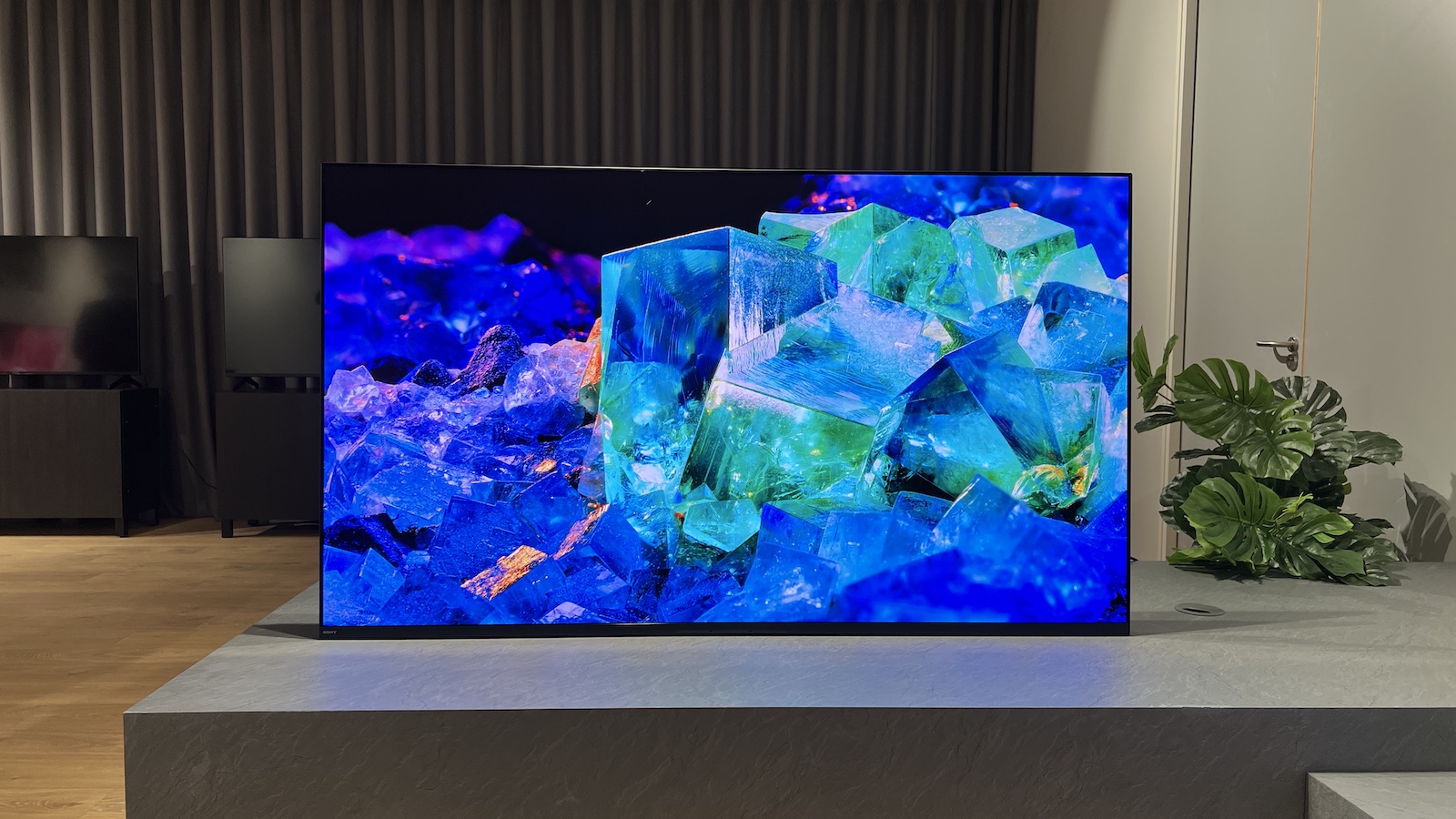
The Sony A90K launched back in 2022, but that hasn't stopped Sony from squeezing yet another year out of it. This TV soldiers on for 2024 in both the 42- and 48-inch sizes, serving as Sony's "small" OLED TV for this year.
It's a standard WOLED panel with a 4K resolution and 120Hz refresh rate on both sizes. Once again we have four total HDMI sockets, with two rated to support the full 48GB bandwidth of HDMI 2.1, one of which doubles as HDMI eARC. Sound is achieved via the Acoustic Surface Audio+ system and we considered it to be a strong, if not game-changing performer in this regard.
What truly won us over with this TV is its excellent picture performance, as it bears the usual marks of a Sony OLED TV, including crisp details and deep contrast that results in a stunningly natural image. While competition from LG in the small OLED TV category is tough, this is still a solid TV, even if it is ageing at this point.
Read our full Sony XR-48A90K review
| Row 0 - Cell 0 | UK | US | Australia |
| 42in | £1349 | $1300 | AU$1799 |
| 48in | £1399 | $1400 | Discontinued |
Sony X90L LED TV
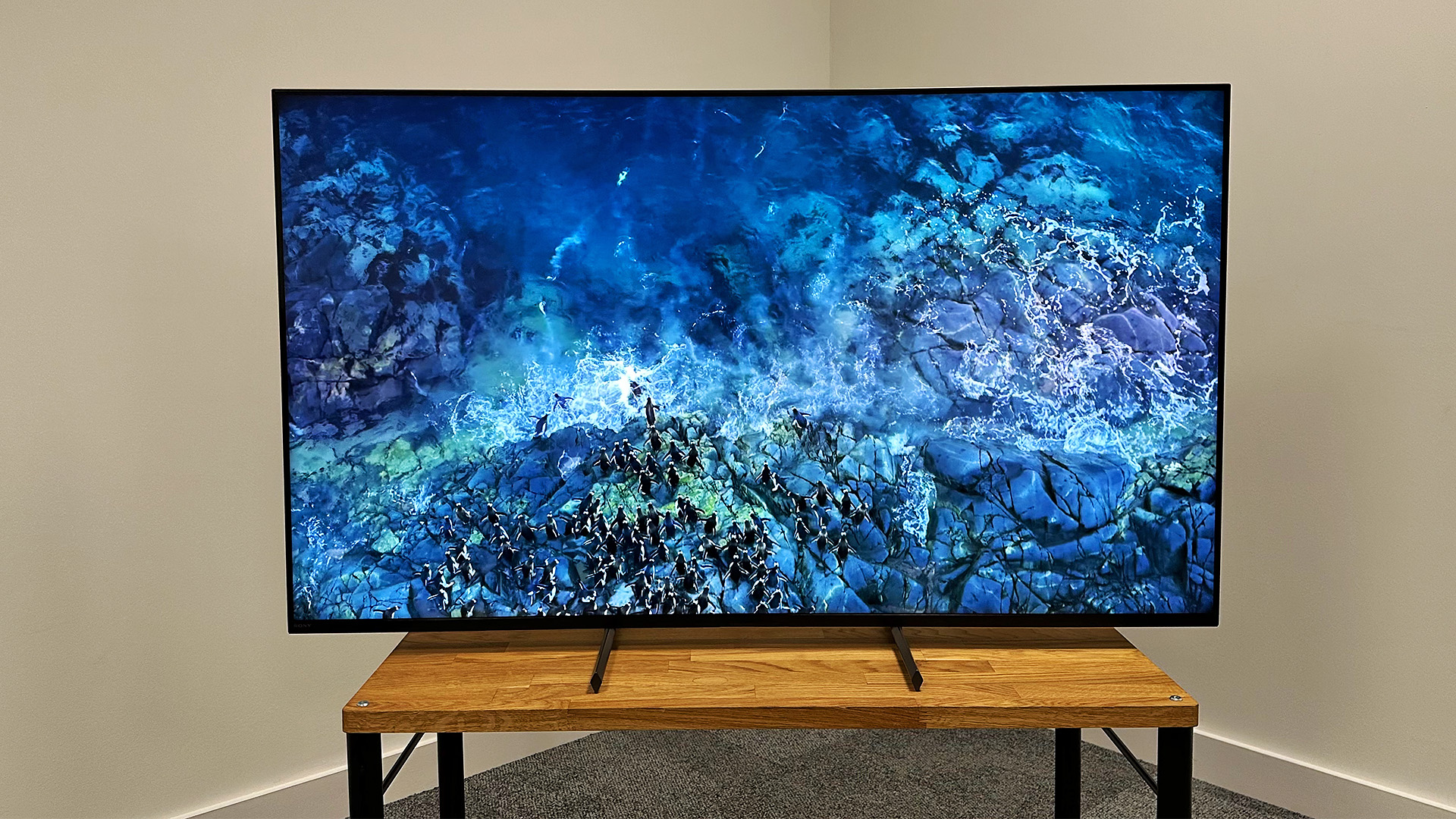
Another returning model is Sony's mid-range backlit TV from 2023 which will also serve in the 2024 lineup. It's another strong performer, so we don't have concerns with it sticking around for another year; it feels different enough from the Bravia 7 to justify its spot on the lineup.
We complimented its bright and impactful picture in our review, as well as its impressive balance and backlight control. It also scores an admirable four in the sound department thanks to its solid performance where dynamics, volume and spaciousness are concerned.
We did have minor concerns regarding viewing angles and the inferior gaming specs compared with sets from Samsung and LG, but considering that this TV has dropped in price since it launched last year, it could be the one to go for if you are balancing value and performance.
Read our full Sony XR-55X90L review
| Row 0 - Cell 0 | UK | US | Australia |
| 55in | £999 | $1200 | AU$1795 |
| 65in | £1199 | $1300 | AU$2125 |
| 75in | £1699 | $1800 | AU$2664 |
| 85in | £2499 | $2300 | AU$3665 |
| 98in | £4999 | $8000 | AU$7495 |
Sony X85L LED TV
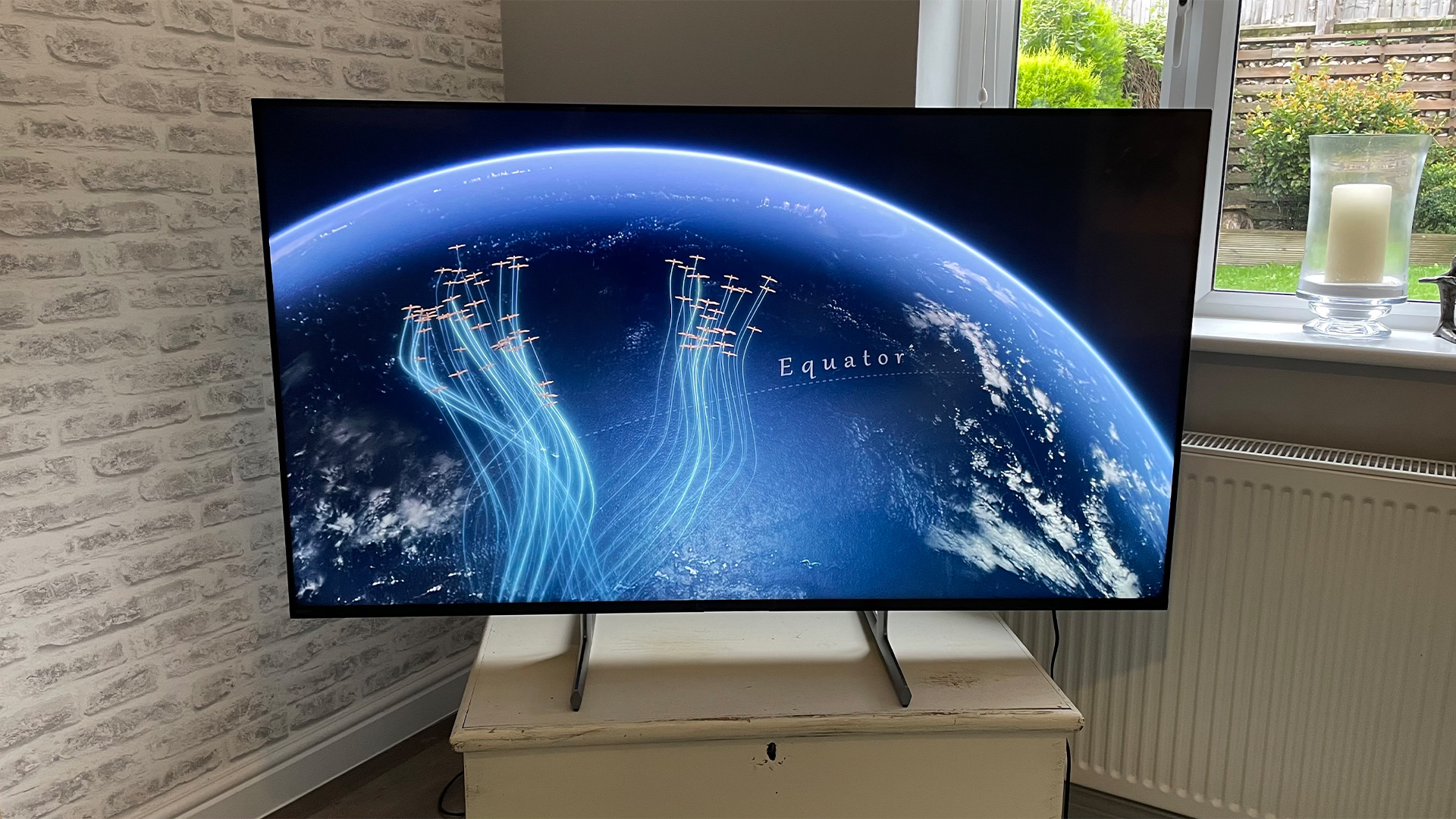
This is a further step down in Sony's backlit lineup and a continuing model from 2023. We awarded it five stars last year thanks to its excellent contrast and backlight control, balanced colours and excellent motion handling. It's a winner in the picture category, despite the fact it uses a full array LED backlight. It does feature local dimming which accounts for the enhanced contrast and HDR performance.
Sound-wise, we found that the X85L plays it too safe at times, but we appreciated that it knows its limitations to avoid distortion. It sounded clear, detailed and fairly well-refined for built-in TV speakers, although we wish it had a touch more bass. That all being said, we find it to be a solid performer by TV speaker standards.
The X85L is also specified very similarly to the other TVs on this list, with two HDMI 2.1 sockets for 4K/120Hz gaming with VRR and ALLM. It also supports Dolby Vision HDR and Dolby Atmos immersive audio over HDMI eARC.
Read our full Sony XR-55X85L review
| Row 0 - Cell 0 | UK | US | Australia |
| 55in | £999 | Discontinued | AU$1471 |
| 65in | £1099 | Discontinued | AU$1773 |
| 75in | £1499 | Discontinued | AU$3799 |
MORE:
Check out the full Samsung 2024 TV lineup
As well as the Hisense 2024 TV lineup
And our picks for the best TVs for 2024
Get the What Hi-Fi? Newsletter
The latest hi-fi, home cinema and tech news, reviews, buying advice and deals, direct to your inbox.
Lewis Empson is a Senior Staff Writer on What Hi-Fi?. He was previously Gaming and Digital editor for Cardiff University's 'Quench Magazine', Lewis graduated in 2021 and has since worked on a selection of lifestyle magazines and regional newspapers. Outside of work, he enjoys gaming, gigs and regular cinema trips.
-
A_l_O So basically unless you want a TV that's bigger than 55" or want to spend over £ 1000 then Sony don't want your custom - that's good to know.Reply
I suspect Sony's sales volumes will fall due to this and the winners are going to be LG, Samsung and TCL or Hisense.
